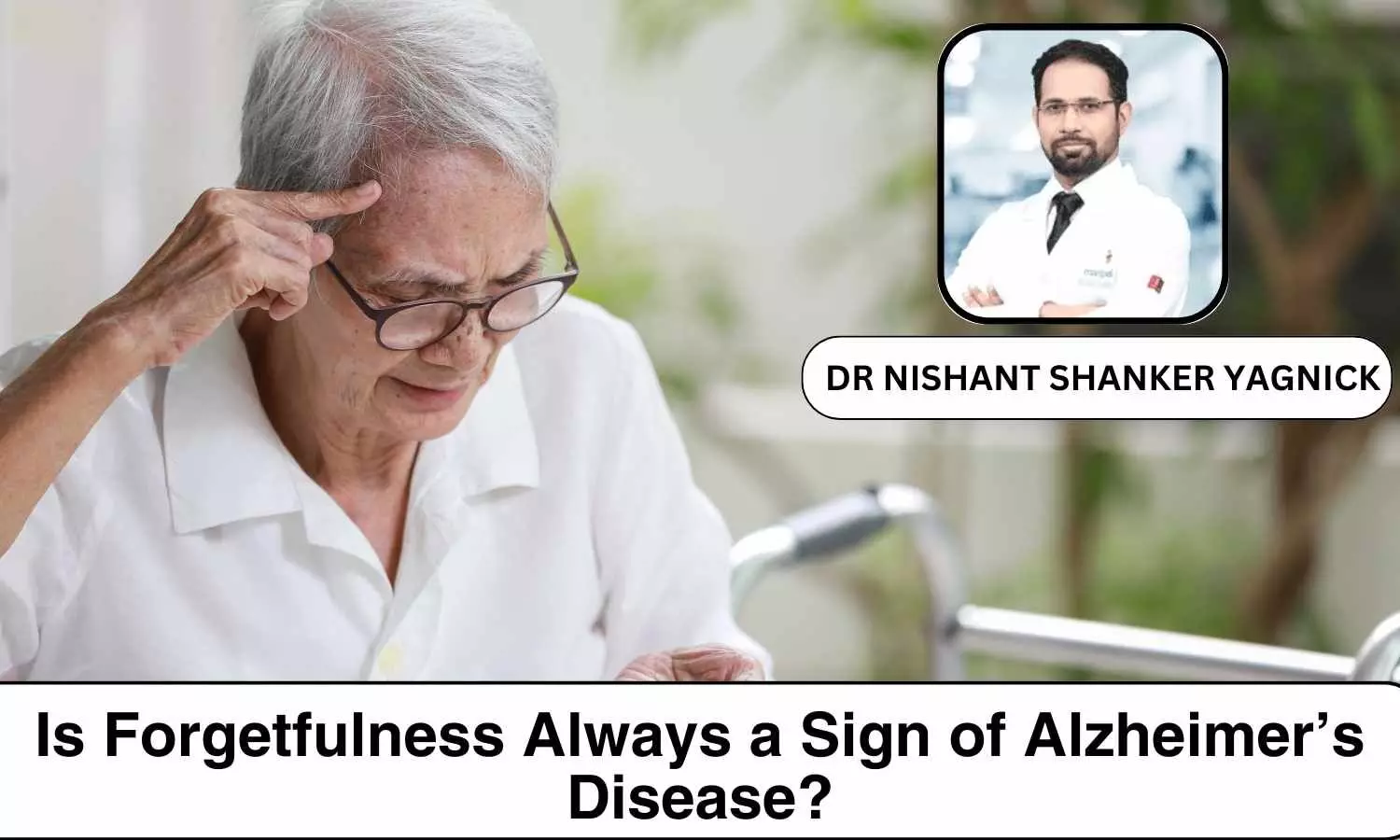Is Forgetfulness Always a Sign of Alzheimer’s Disease? When to Seek Help for Memory Loss - Dr Nishant Shanker Yagnick

As people age, individuals suffer from a common concern of memory loss. Memory loss is often associated with Alzheimer’s, but it can be caused by different reasons. Alzheimer’s is a neurological disorder that affects the elderly, causing memory loss and changes in behaviour. It is important to know the difference between age-related forgetfulness and symptoms that require investigation.
It's natural that the mental process slows down as people start to age. There will be moments like forgetting names or remembering keys. Some studies suggest that this kind of memory loss is due to changes in the structure of the brain and its function.
Alzheimer is a brain condition causing a decline in memory, learning, thinking, and organising skills. Over time, it starts affecting a person’s ability to do basic daily activities. Alzheimer's disease is said to be the most common cause of dementia.
Over time, the symptoms of Alzheimer tend to worsen. According to researchers, the disease starts to develop approximately 10 years before the first symptom appears. It ideally affects people over the age of 65. There is a constant rise in Alzheimer cases in India due to the rise in the elderly population.
According to the CSIR-National Institute of Science, Communication, and Policy Research, in 2019, India was estimated to have 3.6 million active cases of AD.
Factors that contribute to the increasing risk of Alzheimer's disease are:
- A person with a family history of Alzheimer's is prone to the condition.
- Lack of physical activity, a poor diet, and smoking increase the risk of developing the condition.
- Conditions like diabetes, hypertension, and cardiovascular disease are linked to the decline of mental conditions.
Other than Alzheimer's, other conditions lead to memory loss:
- Deficiency of vitamin B12 and D
- Hypothyroidism leads to forgetfulness.
- Conditions like depression and anxiety also affect memory.
Some medications also have side effects that result in memory loss.
When should I look for help?
Before the condition of memory loss worsens, it is important to seek medical advice. Here are some signs and symptoms that one should look for and consult their medical professional immediately:
- Getting names, events, and dates
- Not able to perform daily tasks
- Going through changes in mood, behaviour, and personality.
- Often getting confused in familiar places.
The diagnosis of Alzheimer's and any other memory-related condition includes a medical history, physical examination, and tests like MRI or CT scans of the individual.
Managing Memory Loss
Even if a person is not sure of the cause, there are some strategies that one can follow to manage memory loss:
- Having a diet that is rich in fruits, vegetables, and proteins, as well as consumption of a Mediterranean diet that includes healthy fats like olive oil and nuts, is beneficial.
- Increase brain-stimulating activities like puzzles, reading, and learning new skills.
- Increase in social activity and building strong relationships.
- Take adequate sleep to improve overall brain health.
As awareness grows in India, there is hope for better management of the condition, enhancing the quality of life of those affected. Support groups and counselling sessions play a major role in providing the person with needed emotional assistance. People can take a few important steps to maintain good brain health, like adopting a healthy lifestyle, staying informed about the symptoms, and asking for help when required.
It is important for family, friends, and carers to be aware and educated about the early signs and provide a supportive environment. An improvement in brain health can also be seen by an increase in physical activity, consuming a diet rich in nutrients, and being mentally active. Also, it is very important to manage stress and consult a healthcare professional when required for early detection of the condition.


